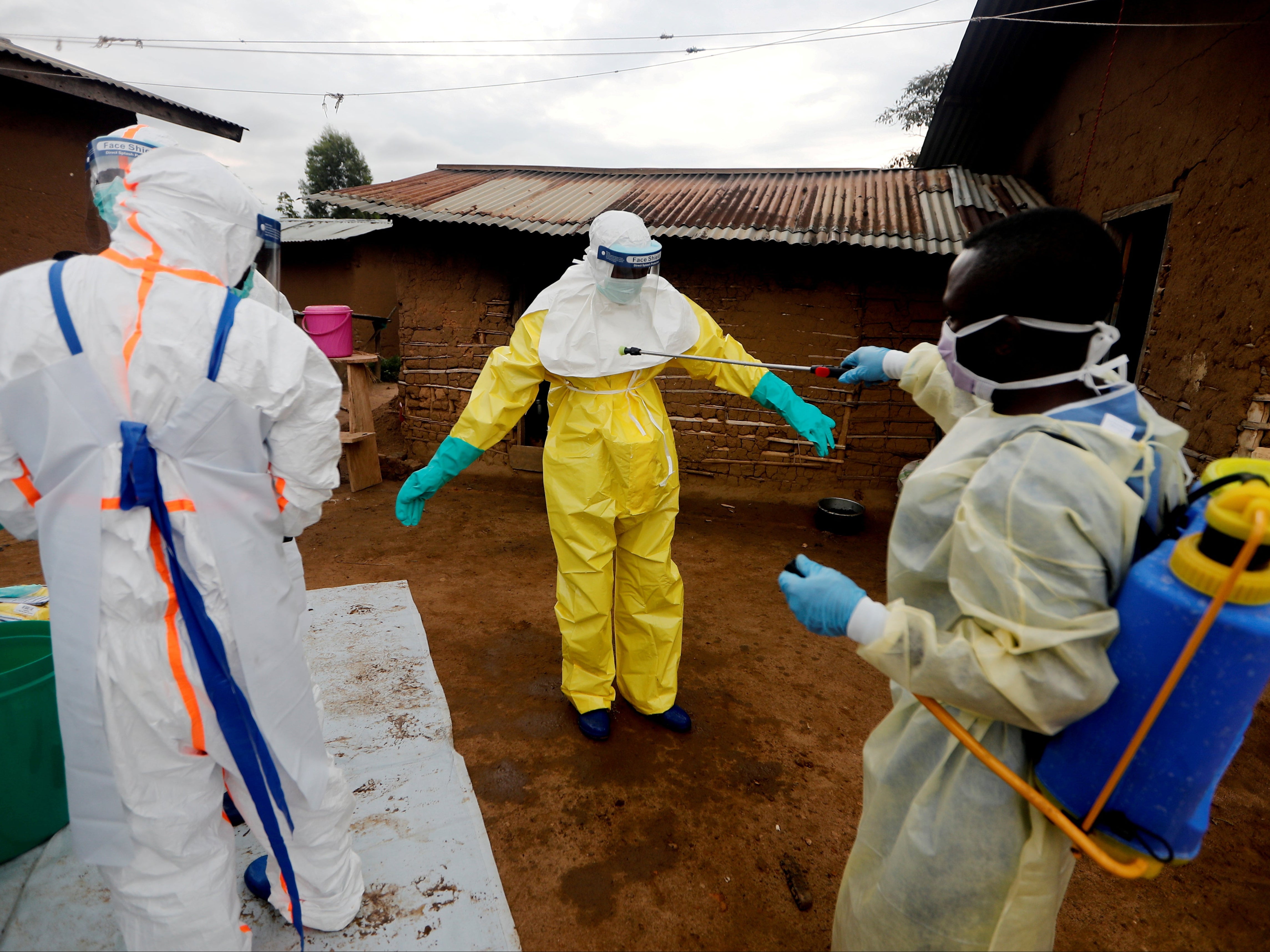Three new Ebola cases discovered in DRC
Latest flare-up appears to be linked to huge 2018-20 outbreak, says WHO

Your support helps us to tell the story
From reproductive rights to climate change to Big Tech, The Independent is on the ground when the story is developing. Whether it's investigating the financials of Elon Musk's pro-Trump PAC or producing our latest documentary, 'The A Word', which shines a light on the American women fighting for reproductive rights, we know how important it is to parse out the facts from the messaging.
At such a critical moment in US history, we need reporters on the ground. Your donation allows us to keep sending journalists to speak to both sides of the story.
The Independent is trusted by Americans across the entire political spectrum. And unlike many other quality news outlets, we choose not to lock Americans out of our reporting and analysis with paywalls. We believe quality journalism should be available to everyone, paid for by those who can afford it.
Your support makes all the difference.Three new Ebola cases have been confirmed in eastern Democratic Republic of Congo, bringing the total to five in the last 10 days, the World Health Organisation (WHO) said on Monday.
Health officials said the latest flare-up of the virus appeared to be linked to the massive 2018-20 outbreak which killed more than 2,200 people, and infected more than 1,000 others.
The cases were detected on Saturday in the health district of Butsili, close to the city of Beni where the last outbreak was centred, the WHO said in a statement. Three people out of the five confirmed cases have died.
Resurgences after a major Ebola outbreak can be caused by latent infections that linger in the semen of survivors. Another cluster of cases linked to the 2018-20 epidemic broke out in February and was contained by May after six deaths.
Vaccines have revolutionised medics’ ability to contain recent outbreaks more quickly. Last week they began vaccinating contacts of the cases using a shot manufactured by Merck. It is one of two available Ebola vaccines, of which the other is made by Johnson & Johnson.
Ebola is an extremely dangerous haemorragic virus that is spread through bodily fluids.
Last week, a WHO study revealed fears that across the African continent just one in seven cases of Ebola are being detected. “With limited testing, we’re still flying blind in far too many communities,” said Matshidiso Moeti, regional director of the UN body.
Under new plans, active surveillance measures will be implemented in a 100m “ring” around the homes people confirmed to be infected.
The UN plans to test some seven million people across eight countries in the next year.
Additional reporting by agencies
Join our commenting forum
Join thought-provoking conversations, follow other Independent readers and see their replies
Comments